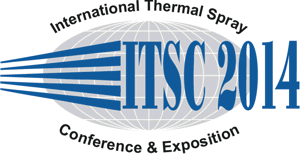
|
3898 |
|
Thursday, May 22, 2014, Hall H1 9:40 AM Aviation Industry 2 |
|
Process design to enhance fatigue resistance in coatings: Experimental and modeling approach |
|
Alfredo Valarezo* / Universidad San Francisco de Quito,
Department of Mechanical Engineering.
& Stony Brook University, Center for Thermal Spray Research, Ecuador Juan Felipe Oviedo / Universida San Francisco de Quito, Ecuador Anssi Anssi/ VTT, Finland Tommi Varis/ VTT, Finland Maria Oksa/ VTT, Finland Sanjay Sampath/ Stony Brook University, USA |
|
Advances in the understanding of residual stress formation allows for appropriate selection of process parameters towards obtaining desired residual stress profiles in the coatings. Coatings in compressive residual stress state increase their fatigue resistance, and severe shifts of the stress profile in the coating/substrate interface contribute negatively to the adhesion strength. Strategic manipulation of process variables, mainly: feed stock, torch gas flows, feed rate, and substrate temperature can allow the design of optimal stress conditions. For instance, to increase the peening effect (responsible for compressive residual stress) in high velocity spraying (cold spray, warm spray, HVOF, etc) particles can be projected faster while keeping the deposition temperature low. Modeling the impact of particles allows us to support experimental data, and resolve the key parameter selection via a sensitivity analysis. |